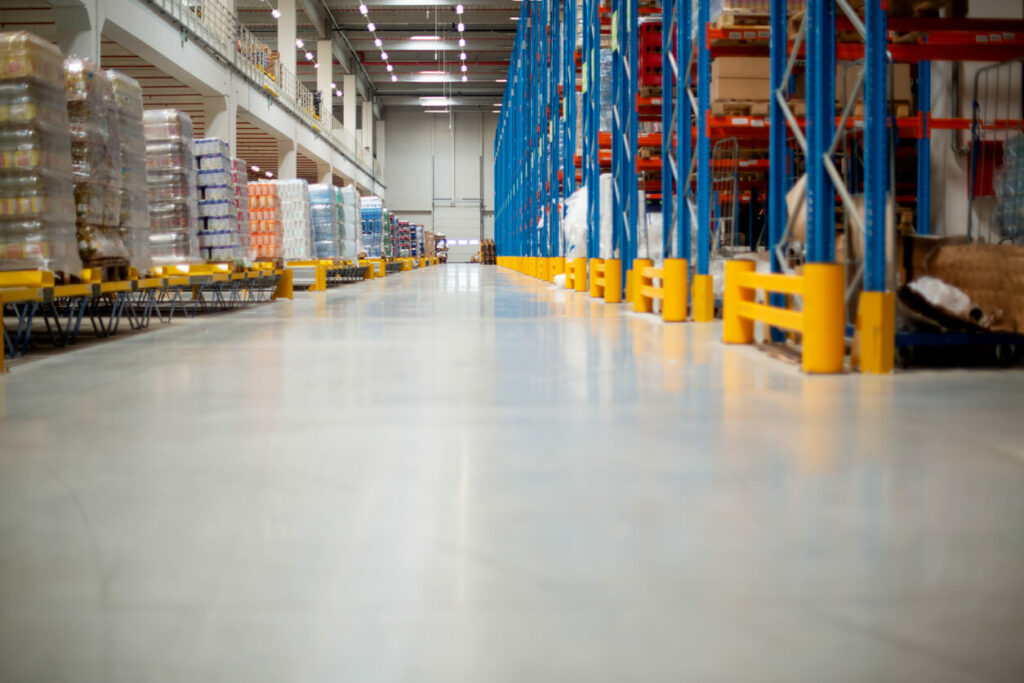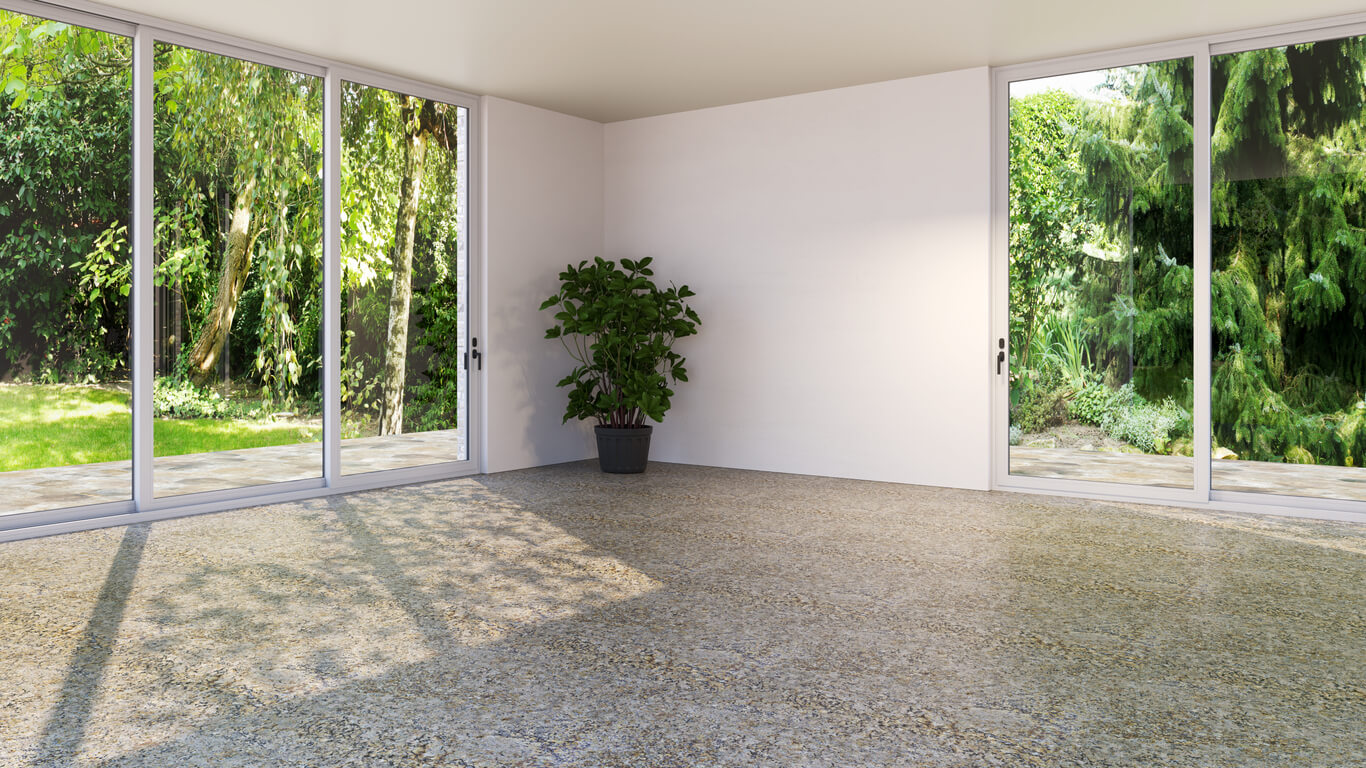
Meeting the Demands of Modern Logistics with Industrial-Grade Warehouse Flooring
News
Warehouse flooring is a fundamental yet often underestimated part of modern logistics infrastructure. As fulfilment...
Read More
Modern workspaces demand more from their flooring than ever before. From aesthetics and safety to hygiene and performance, every element must serve a purpose. Resin bound flooring has become a standout choice by delivering long-term reliability, visual appeal, and practical efficiency all without excessive upkeep or hidden costs.
Resin flooring is becoming a popular choice in commercial settings. In this article, our flooring expert outlines what to consider during planning and installation to ensure a successful outcome.
Resin flooring creates a smooth, joint-free surface that looks clean and performs well. It’s hard-wearing, easy to maintain, and flexible in design qualities that make it suitable for many professional settings.
Key benefits:
It’s especially useful in spaces where appearance matters as much as practicality.
Here’s how resin flooring stands up against popular commercial alternatives:
For many commercial sites, the long-term convenience of resin bound floors makes them a better investment.
Businesses using resin flooring include:
This versatility allows resin bound flooring to support very different industries with the same reliable performance.
Installing flooring involves several essential steps:
A proper install reduces downtime and ensures durability.
Resin bound systems may seem expensive initially, but they deliver savings over time:
The 10–20 year lifespan and minimal upkeep mean lower costs overall.
Resin floors are widely used in:
These industries need flooring that handles intensive, ongoing use with minimal issues.
Many commercial sites now factor sustainability into their material choices. Resin systems offer several eco-conscious advantages:
Some systems can also be laid over existing subfloors, reducing demolition waste.
Flexflooring worked with Audi Tunbridge Wells to refurbish their showroom floor. The client wanted a resilient surface that reflected their brand image while handling footfall and vehicle traffic.
We installed Flexstone resin bound flooring, resulting in:
The upgrade helped Audi elevate their visual standards while making maintenance easier.
Key mistakes include:
Avoid these errors by consulting experts early and ensuring all materials are certified for commercial use.
Bring in an expert during your initial planning stages, particularly if flooring upgrades are part of a wider refurbishment. A specialist helps you select the right formulation, avoid downtime, and follow best practices.
For commercial settings, resin bound flooring supports safety, productivity, and long-term value. It’s easy to clean, comfortable underfoot, and durable enough for frequent use all with a polished look that fits into modern aesthetics.
Need help choosing the right system? Contact our team at 01622 747909 or [email protected]
Routine cleaning with non-abrasive products will extend your floor’s life. A maintenance plan helps preserve its finish and avoid early wear.
Scheduling annual inspections can also help identify early signs of wear and address them before they become costly issues. In high-traffic zones, adding protective entrance matting reduces abrasion and keeps surfaces in better condition. Clear guidance for cleaning staff ensures consistent care, especially in multi-use premises where responsibility is shared.
Yes. Professionals can fix localised damage and match the finish.
Yes. It performs well in wet or greasy conditions.
With proper care, resin floors can perform for up to 20 years.
No, just pH-neutral, non-abrasive solutions recommended by your installer.
Lorem ipsum dolor sit amet, consectetur adipiscing elit.

News
Warehouse flooring is a fundamental yet often underestimated part of modern logistics infrastructure. As fulfilment...
Read More